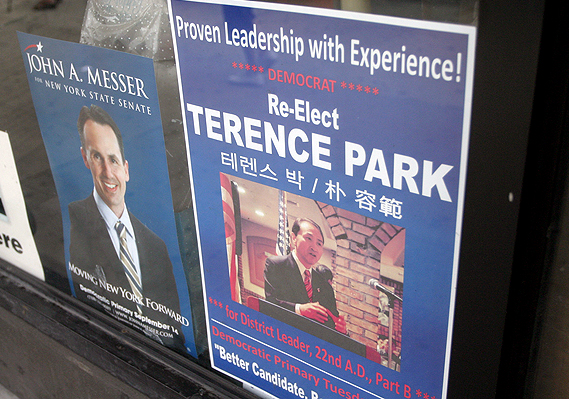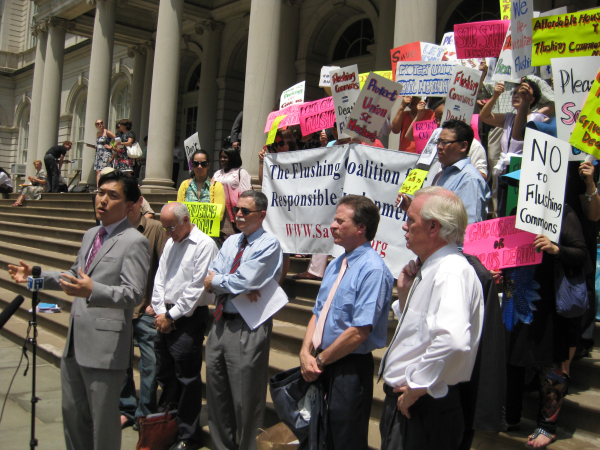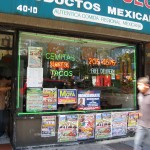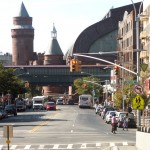
Terence Park wants to be elected Democratic District Leader in Queens. (Photo: Larry Tung)
Flushing is the center of Asian-American political life in New York City. As more Asian-Americans take interest in public office, the Queens neighborhood is becoming an increasingly competitive arena where any position is hotly contested. Koreans are the latest group to try to use Flushing as a springboard to political power.
A diverse community where more than half of the residents are Asian, Flushing has been the site of many milestones in the history of Asian-American politics in New York. In 2001, Flushing elected the first Asian-American city councilmember, John C. Liu, who went on to become the city’s comptroller, making him the first Asian-American to hold citywide office. The district also elected the first Asian-American to the State Assembly, Jimmy Meng, in 2003. He was succeeded in 2005 by the first elected Asian-American woman, Ellen Young.
Although Chinese-Americans like Liu, Young and Meng dominate Flushing politics, Korean-Americans are now trying to enter the field.
Terence Park, 50, a Korean-American community organizer who had unsuccessful runs for the City Council and State Assembly, has entered the race to become the male Democratic District Leader in Part B of Assembly District 22, which covers Flushing. The position is a liaison between political parties and the communities, and is often considered a step before running for higher political office such as the City Council.
Park’s sole opponent is S.J. Jung. Jung, 46, a small-business owner and president of Min Kwon Center, a community organization for Korean-American youth, ran for the City Council in the Democratic primary last year but lost in a tight race to Yen Chou, a Taiwan-born education advocate who eventually lost to the current City Councilman, Republican Peter Koo, in the general election.
“Any competition is healthy competition,” said Park.
Park and Jung are two out of the three Korean-American candidates competing in September 14th’s Democratic primary, according to the candidates list released by the New York City Board of Elections. The third is Gov. David A. Paterson’s regional representative in Queens, Ronald T. Kim, 31, who is hoping to be elected as the delegate to the judicial convention, which ratifies party nominations for judges.

S.J. Jung speaks in front of a group of small business owners and residents who opposed the construction of Flushing Commons, a mega development project. (Photo: Larry Tung)
Jung, who has been endorsed by Liu and Queens Borough President Helen M. Marshall, said he would like to create a multi-ethnic coalition in Flushing.
“We have incredible diversity in our community but there are tensions that divide and strain inter-group relations. But I know from experience, that when we bring people together around concrete solutions that benefit everyone, the walls of division break down and we begin to build stronger community,” said Jung in a recent statement.
Some say that connecting with other ethnic groups is key to winning.
“Koreans are homogeneous,” said Pyong Gap Min, a sociology professor at Queens College. “Chinese come from Hong Kong, Taiwan, and mainland China…In terms of connecting with other groups, Chinese do better.”
Koreans are also significantly outnumbered by Chinese in Flushing, according to census data, which might explain why the Chinese-American community has more elected officials locally.
Min also noted that many Koreans may have trouble building an electoral base in Queens because many Korean-Americans leave Flushing for Long Island and New Jersey as they became more settled into American life, while the new arrivals usually cannot vote because they lack citizenship.
In addition, some media outlets have portrayed the relationship between the Chinese and Koreans in Flushing as one of tension or rivalry, as indicated by a recent report in the New York Times on Flushing Commons, a mega development project that will replace Municipal Parking Lot 1.
State Assemblywoman Grace Meng, D-Flushing, dismissed such depictions, saying that there is not as much conflict as some people portray.
“Anytime there is a growing community, there will always be growing pain,” said Meng, whose father is Jimmy Meng. She is married to a Korean-American dentist. “That fact that you have more than one [ethnic group in the community], it’s somehow a sign of us becoming more mainstream.”
Dongchan Kim, president of the Korean American Voters’ Council, which promotes voter registration and education, said he would like to see a Korean-American elected but said ethnicity should not be the most important factor.
“It’s about the qualification,” said Kim.
Larry Tung is a frequent contributor to Gotham Gazette. Feet in Two Worlds coverage of the New York Primary is supported, in part, by the New York Community Trust.




